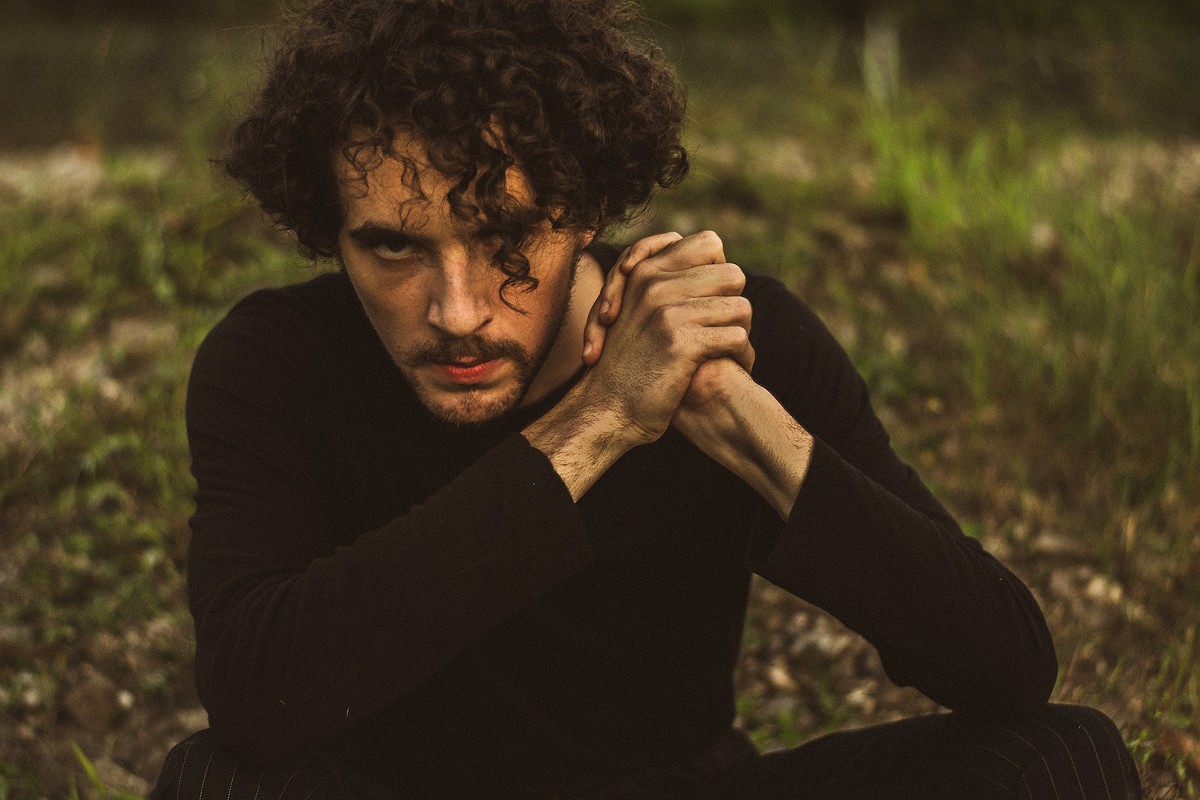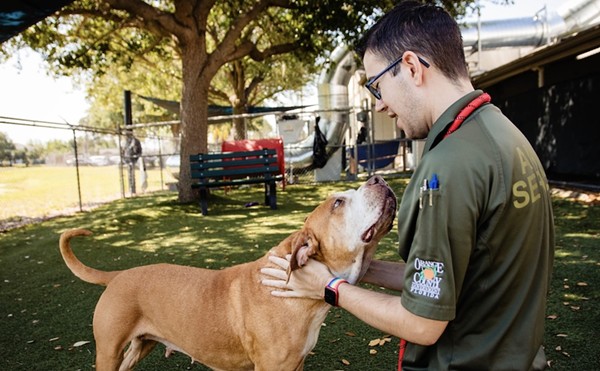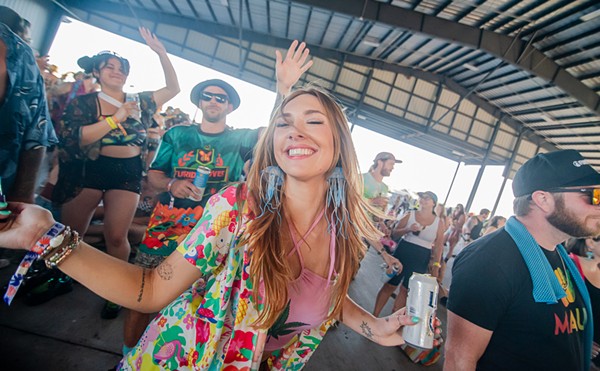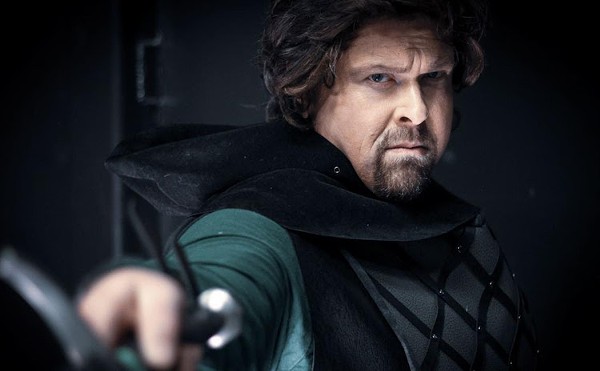It's fitting that director Jeremy Seghers is staging one of the first live theater productions in the city since the coronavirus pandemic shuttered Orlando's theater spaces back in March; Seghers has made his name putting on left-field productions in unconventional spaces. In 2016, he staged Equus in a barn at the Acre, and then brought Dracula to a taxidermy shop on OBT. In 2019, he brought Three Stories to the Timucua Arts Foundation house, placing the audience on the erstwhile stage and the actors everywhere else.
Over the next two weekends Seghers is presenting Greek tragedian Euripides' final work, The Bacchae, as drive-in theater – first in the parking lot of Osceola Arts, and then in a field at the Orlando Executive airport in the Milk District.
Hearing Seghers talk about all the happy accidents and collaboration that made up this bare-bones DIY production, we got distinct John Waters, Ed Wood (a compliment, we assure you) and Werner Herzog vibes ... from the Greek amphitheater to the B-movie screen. When Seghers enthuses about the cast fleeing rain during ad hoc outdoor rehearsals at the Urban Wetlands near Greenwood Cemetery, using flashlights as stage lighting, pausing mid-dialogue when airplanes fly overhead, and handling curious bats that drop in on rehearsals, it's clear this is going to be a unique experience on both sides of the headlights. And when he mentions that the two different locations – more serendipity – make it almost like a mini-tour for the actors, we're ready to get in the van.
Though Seghers insists outright that his Bacchae is not a statement on the times or the coronavirus, so much of the production was impacted by it. Rehearsals started on Zoom, then moved to open parks; venues had to be outdoors; Seghers even credits the initial inspiration for the production to attending a drive-in movie a couple of months ago.
Much of the production seems to be predicated on looking to the past for viable ways to make art during an uncertain present. "There's this feel of like, 'let's just put on a show!'" says Seghers. "It's kind of a throwback because we don't have the luxury of all the technology. It's simple and old-school, but really old-school, like 2,000-plus years."
What was the genesis of this production?
Back in May I went to a drive-in movie in Lakeland with some friends, And we were seeing Psycho. I was a little apprehensive because before that I wasn't going out, I was staying home and working from home. But it was distanced and everybody was being safe and wearing masks and being really respectful. And I was able to sit there with the windows down, the radio on to get the sound, and I was able to really relax, and there are people around and I can look over at my friends in their car. And on the way home I started thinking about how I could do theater like that.
And last year I had started re-reading Euripides' plays and I came across The Bacchae. Even by Greek standards, this is a really strange story, and it's not typical of Greek theater. I just started researching the origins of The Bacchae, and it made sense to do it because it is so challenging. I don't like to do stuff that's not a challenge. And the story itself ... nobody could agree on what it was about or what he's trying to say. It was late in Euripedes' life when he wrote the play; it wasn't even produced till after he died. And it just didn't seem like he gave a fuck, he had nothing to lose.
Then with the casting, I didn't have to twist anyone's arm. I thought of my first choices for casting and everyone said yes. That's a sign you know that things are gonna work out.
Is Greek tragedy especially friendly to a socially distanced production? Every gesture and word is bigger ...
Yes, and it's also very intimate too because the actors are right in front of the cars and they're moving around the cars sometimes, shining flashlights into them. I'm hoping it feels modern but with the spirit of guerrilla theater, of just finding a spot and doing a show. I've always had the notion that theater can be anywhere, you don't need a theater space to do it. This is just kind of like an extension of that.
I see so many people get really discouraged like, "When can we do theater again?" You can do it now. You just have to do it safely! Anybody can do what I'm doing; you just have to be stubborn. Be really, really stubborn and persistent and not give up and just keep going and pushing, and think outside the box.
You're combining very different eras of performance with this show.
There's the Greek theater aspect, a throwback to people gathering in a space to watch a play without a lot of bells and whistles. The lights that are involved after dark are operated by the actors, their flashlights. There's no amplification for voices, other than just projecting.
But also, during quarantine I re-read Peter Brook's book The Empty Space. And in that, his view is that theater could be anywhere. That kind of theatrical approach was used in the late 1960s quite a bit. So when I was approaching The Bacchae originally, we were coming at it from a 1960s aesthetic – with Dionysus being a sort of cult-leader Charles Manson character and his Bacchae being the Family. ... I stripped that back a little bit. I thought, "OK, we're not going full Manson, we're not doing Once Upon a Time in Hollywood."
But it's creepy. Take some of the things that Manson said and some of the Dionysus quotes from the play, and put them side by side and it's hard to tell, sometimes, who's saying what. But it also goes to show that things don't change. A narcissist cult leader from 1969 is pretty much the same as a narcissist cult leader/god from, you know, 405 B.C.
– This story appears in the Aug. 12, 2020, print issue of Orlando Weekly. Stay on top of Central Florida news and views with our weekly newsletters.

















